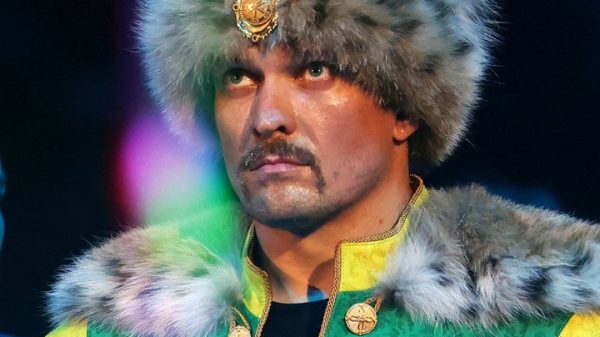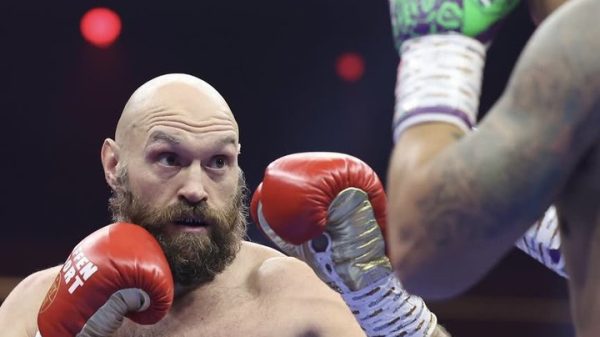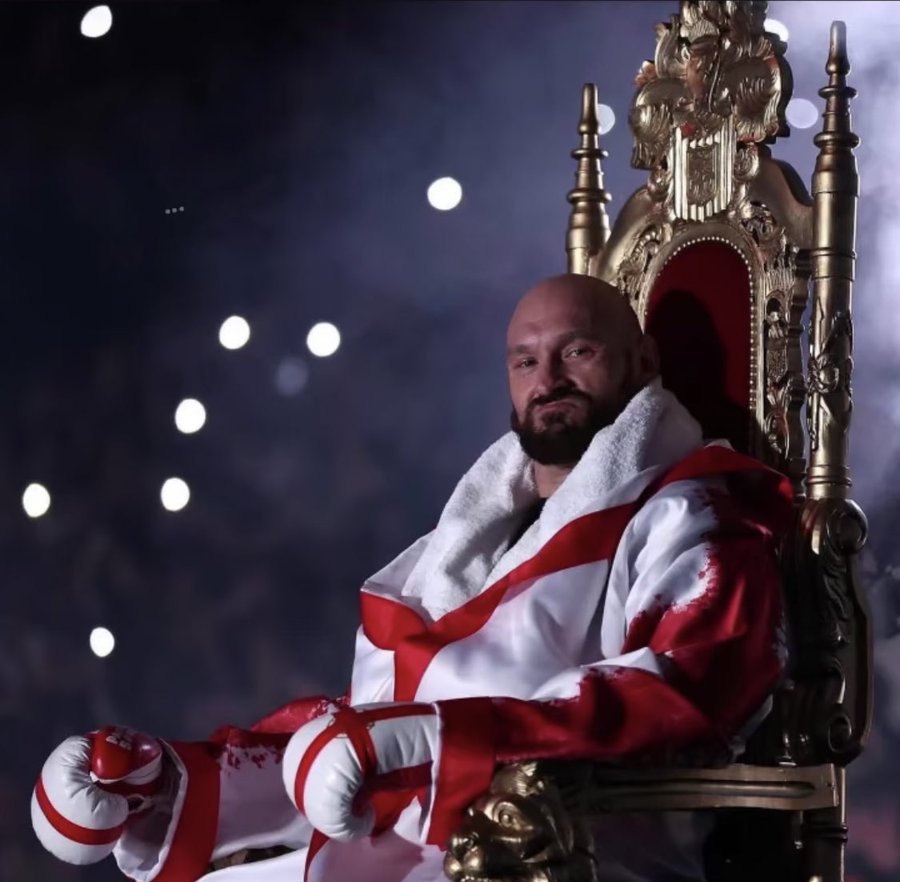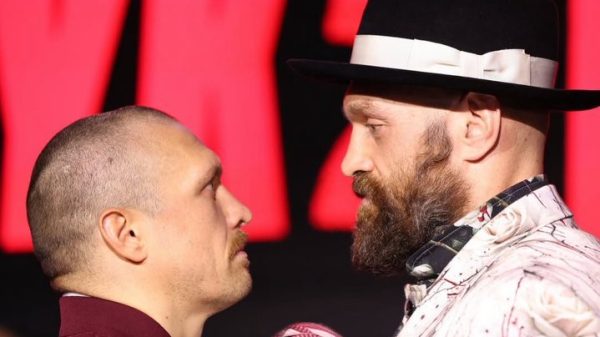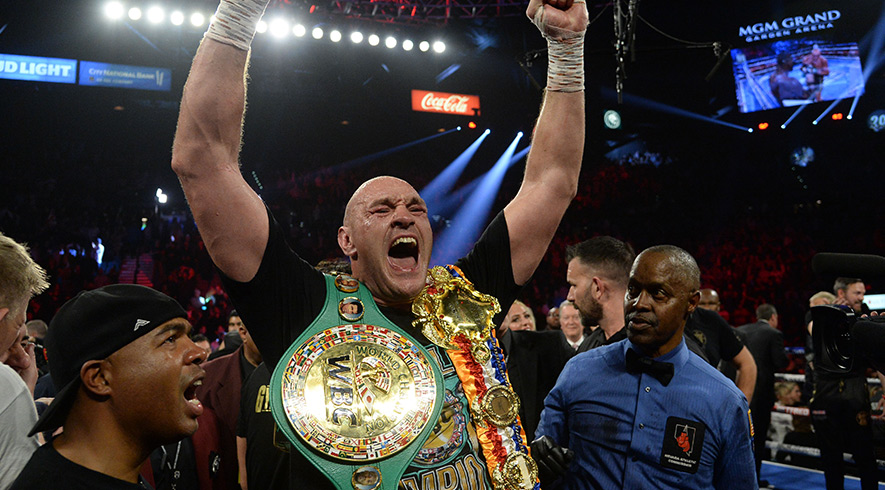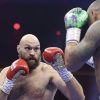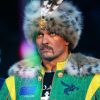by Johnny Walker
If there’s anything observers of boxing have learned in the past few months, it’s that this business of being the next “heavyweight savior” is a bit tricky.
In the jockeying for position that has taken place among fighters hoping to dominate what is commonly referred to as the coming “post-Klitschko era” (both world champion brothers are still active, but the chance of anyone beating one of them seems remote, so why not look toward their retirements?), we’ve seen two of the prime candidates try to step up, only to be brutally slapped back down.
First, in America, the heavily hyped former football player, Seth “Mayhem” Mitchell, received a rude reminder of how difficult it is–even though the Klitschkos, to their own detriment, perhaps, often make it look easy–to step up and win in the elite level of the heavyweight kingdom.
Last November, Mitchell took on not world champ Wladimir Klitschko, but his sparring partner–and now, in the wake of Emanuel Steward’s passing, also his trainer–Johnathon Banks of Detroit. This fight against the sturdy but to this point unspectacular former cruiserweight contender was meant to transition Mitchell into serious contender status, a showcase for a guy who’d been knocking out lesser opponents with regularity to this point in his still young career.
Such is the desire of its boxing fans and many members of its boxing media for America to regain its ownership of the heavyweight titles, that much of the press on Mitchell before the Banks fight focused not on Banks, but on his boss. Was Seth Mitchell looking forward to challenging Wlad or Vitali, and when? He answered such questions repeatedly, and with his usual grace. But aside from assuming too much, this kind of questioning only added extra pressure on a guy still wet behind the ears in boxing, a guy who was playing football not that long ago.
And the result was disastrous.
Banks, anxious to show that he learned something sparring all those rounds with the champion, and perhaps feeling slighted by all the emphasis on Mitchell in the lead-up to the fight, took full advantage when Mitchell got over-confident. After an uneventful first round, Mitchell landed a stinging body shot early in round two. He then leaned in and missed with a hay-maker, and Banks tagged him with a solid if not devastating counter-punch that surprised and stunned Mitchell, who hit the deck.
That was the beginning of the end. There was too much time left on the clock, and Banks showed he could finish the job. Mitchell went down again, and then a third time, when the fight was waved off.
Seth Mitchell had learned the perils of being tagged as “the next great heavyweight from America,” and Johnathon Banks proved that he was more than just the trainer of the best, that he could box a bit himself.
There was a strange kind of symmetry with the Mitchell fight when rising British heavyweight David Price, with his great size and impressive power often tagged as a successor to the Klitschkos, took on American veteran and Klitschko victim (twice!) Tony “The Tiger” Thompson in Liverpool this past weekend.
As Seth Mitchell had done before the Banks loss, David Price spent much of the lead-up to the fight with Thompson answering questions about when he would be ready to fight the Klitschkos. Price, like Mitchell a classy and genial sort, responded by saying he was hoping to impress the Ukrainian champs with his performance.
Perhaps this line of questioning does something to a fighter’s head, or maybe it is just bad karma, a tempting of the fates. But a very similar scenario to what happened to Mitchell was awaiting Price as he took to the ring in Liverpool.
Another uneventful first round. And in the second, like Mitchell, Price got some momentum, landing a few hard body shots that stiffened Thompson’s legs. And then Price, too, got a little careless, a little overconfident in going after the veteran, who was waiting for a mistake. During an awkward exchange, Price got punched on the ear with a counter shot. It looked far from a devastating punch, but down Price went.
And that was that, as the giant Liverpudlian got up only to have the referee declare him unfit to continue. Price had become another victim of the pressure to live up to the tag of “heavyweight savior.” So upset was his manager, Frank Maloney, that he collapsed and ended up in the hospital later that night (Maloney is fine now).
Both Mitchell and Price will come back, of course. Both of them said most of the right things after the losses, including the usual rationalizing and denial (Price called the punch that stopped him a “freak” shot) that is a necessary part of every boxer’s mental makeup after a loss. Learn to forget, as Jim Morrison once sang. Boxers know how important it is to do that. And hopefully for the sport, these two nice guys can find it within themselves to put what has been broken back together.
For the rest of us, the lesson seems to also be: if this was easy, more people would be able to do it.
The Klitschkos have been dominant for so long, that it’s easy to forget how hard it is for anyone to rule the heavyweight division in boxing. That Wladimir and Vitali Klitschko do so and often make it look very easy is a testament to their greatness. The oft-stated argument about “weak opposition” in this era becomes harder to accept when one sees talented and dedicated athletes like Mitchell and Price fall so quickly and so hard the moment they are poised to rise.

